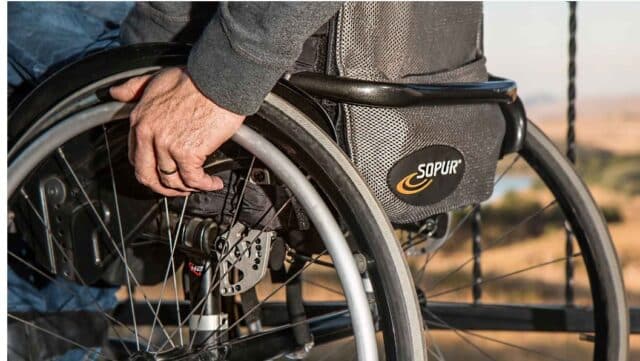Compensation Veterans Can Get From Social Security Disability and Veterans Affairs Disability
Most times, the questions on many veterans’ lips are whether they are eligible for both the Social Security disability and VA benefits. Military veterans who become disabled while serving in the military can get disability benefits from both the Social Security Administration (SSA) and the Department of Veterans Affairs (VA).

“Social security disability has given many veterans a new lease of life,” says Jan Dils of Fight4Vets. Recent data shows more than 900,000 ex-service members received Social Security Disability Insurance (SSDI) in 2016. When establishing eligibility and setting payments, the two federal agencies have separate methods and standards, and receiving VA disability benefits does not always indicate you’ll be eligible for SSDI.
However, if the VA has given you a 100 percent permanent and total (P&T) disability rating, Social Security may be able to process your SSDI application more quickly.

What Differentiates SSDI and VA Disability Compensation
To differentiate between compensations, you should look at your qualifications and medical eligibility status to ascertain if you can collect your benefits.
- For the qualification status: If you were wounded or developed a physical or mental illness while serving in the military, or if a previous condition worsened due to your service, you may be eligible for VA disability compensation. The Social Security Administration is not concerned with how you become ill or wounded. Instead, SSDI eligibility is determined by your job history. You must have worked in protected employment for a set amount of time, which means jobs or self-employment where you paid social security taxes.
- For the medical eligibility status: According to the Social Security Administration, you are eligible for disability benefits from Social Security if your disease is severe. The severity of the illness should be enough to keep you from doing most paid employment for at least a year or could possibly result in death. On the other hand, the VA assigns a percentage to disabilities depending on how much it believes a condition impacts your health and capacity to function. The government gives different percentages to different injuries, such as how much of an arm or leg was amputated due to an injury or which fingers were lost due to an injury.
- For the benefits: Your monthly SSDI payout is calculated based on your lifetime average earnings in a covered job. There is no sliding scale dependent on the severity of your illness; in the perspective of the Social Security Administration, you are either disabled or not. In April 2022, the average SSDI benefit is slated to be $1,361 per month.
How the Veteran Affairs Grades Compensation
The grading that the VA assigns to your condition determines your VA disability compensation. Payments for a veteran without a spouse or children in 2022 could range from $152.64 – $3,332.06 for impairment.
There is a notable exception to the VA’s standard approach of determining payments based on your disability grading. Suppose you don’t have a 100 percent grading but cannot retain permanent employment that provides financial support due to a service-related disability. In that case, you may be eligible for the VA’s Individual Unemployability benefit, which pays at 100%.

SSDI and VA Can Work Hand-in-Hand
There are three ways that the SSDI and VA can both work together, and they include:
#1. Quick Applications
Social Security will expedite the processing of your SSDI claim if you have a 100 percent P&T grading from the VA. Enter Veteran 100 percent P&T in the Remarks section of your online application and provide Social Security with the letter the VA sent you about your grading to expedite processing.
You may be eligible for quick processing under Social Security’s Wounded Warrior program, which prioritizes claims for veterans who became disabled while on active duty on or after Oct. 1, 2001, regardless of your P&T grading.
#2. Nothing like Offset
According to the Social Security Administration, workers’ compensation and several other types of public disability benefits might result in an offset that affects your Social Security payments. SSDI benefits are unaffected by VA disability benefits and vice versa. If you qualify for both, each program will pay the full amount to which you are entitled.
#3. Coverage for Medical Expenses
If you qualify, you can get medical coverage through SSDI and VA disability benefits. Beneficiaries of SSDI are eligible for Medicare, although there is a two-year waiting period in most circumstances before coverage begins.
Tricare, the military’s healthcare program, is available to veterans. If you have both plans, Medicare becomes your main payer (meaning that medical providers must charge it first), and Tricare acts as a supplement to cover copayments and deductibles.

How About SSI?
Veterans with disabilities may be eligible for both VA benefits and Supplemental Security Income (SSI), a Social Security-run benefit program for people with impairments. Veterans may qualify for SSI fast-track processing, just as they are for SSDI.
The size of your SSI payment will be reduced if you get VA disability payments. The reason is that SSI eligibility is determined by both financial need and disability, and money is a big part of that. In 2022, an individual’s maximum monthly SSI benefit will be $841. You may lose your SSI eligibility if you earn more than that from work or other sources, including VA payments.
You can continue to get SSI if your income is lower, but your benefit will be lowered. The first $20 in monthly income is excluded from the computation by Social Security. If you receive $400 in VA disability compensation each month, your SSI payout will be reduced by $380.
Conclusion
Veterans with disabilities who are not related to their service may be eligible for a VA pension, which is a different type of VA benefit. Because income affects eligibility for a VA pension, receiving SSDI or SSI may disqualify you or limit the amount of your pension. While Social Security disability benefits are mainly based on the incapacity to work for a living, you may be eligible for them even if you’re still legally on active duty and getting pay, such as if you’re in a military hospital or assigned to a rehabilitation program.
All content herein is owned by author exclusively. Expressed opinions are NOT necessarily the views of VNR, authors, affiliates, advertisers, sponsors, partners, technicians, or VT Network. Some content may be satirical in nature.
All images within are full responsibility of the author and NOT VNR.
Read Full Policy Notice - Comment Policy




























